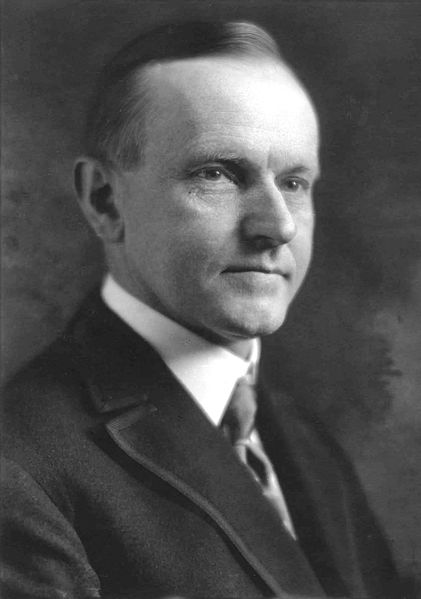No Longer Silenced Cal
December 24, 2020

BY PETER W. SCHRAMM

It is a lamentable fact that sometimes historical scholarship lags behind the truth. The presidency of Calvin Coolidge–indeed, the character of the man himself–was judged harshly and unfairly by the progressive historians who wanted to justify FDR’s expansion of the size and scope of government. But the truth cannot sleep forever. Silent Cal is no longer silenced.
Calvin Coolidge started his comeback when Ronald Reagan placed his portrait in the Oval Office and became a model for Reagan’s “supply side” economics; he increased government revenue by cutting taxes. A few good books were published in the 80s about him, but he is on an even stronger comeback today. And as this is good both for historical truth, so it is good for those who want to reclaim constitutional politics.
Ashbrook’s own Steven Hayward gave Coolidge an A+ for his “principled constitutionalism” in the recently published volume, The Politically Incorrect Guide to the Presidents from Wilson to Obama. Last month the accomplished Amity Shlaes published a biography, Coolidge, to worthy reviews. And this month Why Coolidge Matters: Leadership Lessons from America’s Most Underrated President appeared from the young scholar Charles C. Johnson.
All of these books demonstrate that Calvin Coolidge was one of our more learned and cultured, and thoughtful and eloquent, presidents. They also make evident that Coolidge revered the Constitution and our institutions and habits of self-government. Coolidge said of the Constitution, “no other document devised by the hand of man ever brought so much progress and happiness to humanity. The good it has wrought can never be measured.” And he understood that a good civic education was the necessary condition of freedom: “If we are to maintain the great heritage which has been bequeathed to us, we must be like-minded as the fathers who created it.” In other words, we must think as our Founding Fathers thought.
He also knew, as his hero Abraham Lincoln knew, that the natural rights philosophy of the Declaration of Independence was the solid ground upon which our constitutional government rests. We were not only establishing a new nation in 1776, but a new nation based on new principles of justice and liberty. Coolidge was eloquent on this point. There is a finality to the truths of the Declaration that is exceedingly restful, he said on the 150th anniversary of the great charter. Those progressives who want to move away from these principles, “are not more modern, but more ancient, than those of the Revolutionary fathers.” In short, those who do not believe in natural rights are the real reactionaries.
Let me suggest–as we slouch toward the Fourth of July–that we read these books on Coolidge, and some of his great speeches (he is the last president to write his own speeches), maybe even his graceful autobiography, in order to remind ourselves both of Coolidge’s virtues and why this is such a great day in human history. That the Fourth also happens to be Coolidge’s birthday can be attributed to a happy coincidence.
Peter W. Schramm is the Executive Director of the Ashbrook Center and a Professor of Political Science at Ashland University.
In keeping with the Ashbrook Center’s mission to be the leading national educator in the enduring principles and practice of free government in the United States, this is the first installment of the “Ashbrook History Lesson of the Month.”

